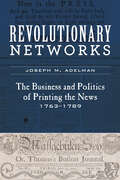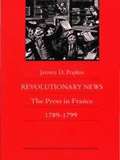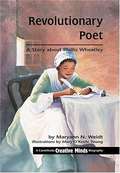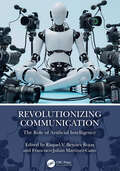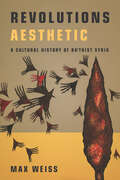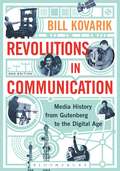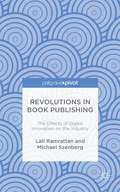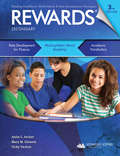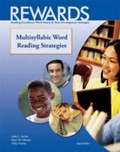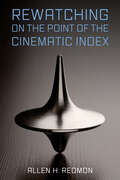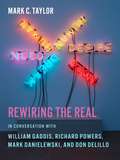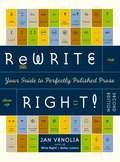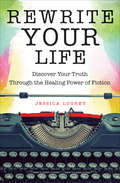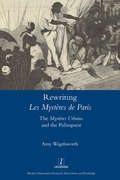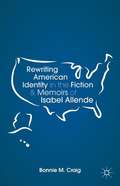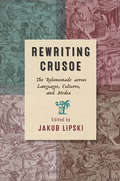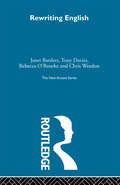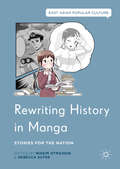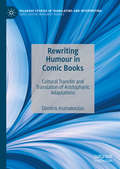- Table View
- List View
Revolutionary Networks: The Business and Politics of Printing the News, 1763–1789 (Studies in Early American Economy and Society from the Library Company of Philadelphia)
by Joseph M. AdelmanAn engrossing and powerful story about the influence of printers, who used their commercial and political connections to directly shape Revolutionary political ideology and mass mobilization.Honorable Mention, St. Louis Mercantile Library Prize, Bibliographical Society of AmericaDuring the American Revolution, printed material, including newspapers, pamphlets, almanacs, and broadsides, played a crucial role as a forum for public debate. In Revolutionary Networks, Joseph M. Adelman argues that printers—artisans who mingled with the elite but labored in a manual trade—used their commercial and political connections to directly shape Revolutionary political ideology and mass mobilization. Going into the printing offices of colonial America to explore how these documents were produced, Adelman shows how printers balanced their own political beliefs and interests alongside the commercial interests of their businesses, the customs of the printing trade, and the prevailing mood of their communities. Adelman describes how these laborers repackaged oral and manuscript compositions into printed works through which political news and opinion circulated. Drawing on a database of 756 printers active during the Revolutionary era, along with a rich collection of archival and printed sources, Adelman surveys printers' editorial strategies. Moving chronologically through the era of the American Revolution and to the war's aftermath, he details the development of the networks of printers and explains how they contributed to the process of creating first a revolution and then the new nation.By underscoring the important and intertwined roles of commercial and political interests in the development of Revolutionary rhetoric, this book essentially reframes our understanding of the American Revolution. Printers, Adelman argues, played a major role as mediators who determined what rhetoric to amplify and where to circulate it. Offering a unique perspective on the American Revolution and early American print culture, Revolutionary Networks reveals how these men and women managed political upheaval through a commercial lens.
Revolutionary News: The Press in France, 1789–1799
by Jeremy PopkinThe newspaper press was an essential aspect of the political culture of the French Revolution. Revolutionary News highlights the most significant features of this press in clear and vivid language. It breaks new ground in examining not only the famous journalists but the obscure publishers and the anonymous readers of the Revolutionary newspapers. Popkin examines the way press reporting affected Revolutionary crises and the way in which radical journalists like Marat and the Pere Duchene used their papers to promote democracy.
Revolutionary Pairs: Marx and Engels, Lenin and Trotsky, Gandhi and Nehru, Mao and Zhou, Castro and Guevara
by Larry CeplairA political historian examines five of the twentieth century’s most significant revolutions, and the partnerships that led the way.Successful revolution requires two triggering elements: a crisis or conjuncture and revolutionary actors who are organized in a dedicated revolutionary party, armed with a radical ideology, and poised to act. While previous revolutions were ignited by small collectives, many in the twentieth century relied on strategic relationships between two exceptional leaders: Marx and Engels (Communism), Lenin and Trotsky (Russia), Ghandi and Nehru (India), Mao and Zhou (China), and Castro and Guevara (Cuba). These partnerships changed the world.In Revolutionary Pairs, Larry Ceplair tells the stories of five revolutionary struggles through the lens of famous duos. While each relationship was unique?Castro and Guevara bonded like brothers, Mao and Zhou like enemies?in every case, these leaders seized the opportunity for revolution and recognized they could not succeed without the other. The first cross-cultural exploration of revolutionary pairs, this book reveals the undeniable role of personality in modern political change.
Revolutionary Poet: A Story about Phillis Wheatley
by Maryann N. WeidtRecounts how a young slave girl in revolutionary Boston became a renowned poet and first African American to publish a book.
Revolutionizing Communication: The Role of Artificial Intelligence
by Benítez Rojas, Raquel V. Martínez-Cano, Francisco-JuliánRevolutionizing Communication: The Role of Artificial Intelligence explores the wide-ranging effects of artificial intelligence (AI) on how we connect and communicate, changing social interactions, relationships, and the very structure of our society. Through insightful analysis, practical examples, and knowledgeable perspectives, the book examines chatbots, virtual assistants, natural language processing, and more. It shows how these technologies have a significant impact on cultural productions, business, education, ethics, advertising, media, journalism, and interpersonal interactions.Revolutionizing Communication is a guide to comprehending the present and future of communication in the era of AI. It provides invaluable insights for professionals, academics, and everyone interested in the significant changes occurring in our digital age.
Revolutions Aesthetic: A Cultural History of Ba'thist Syria (Stanford Studies in Middle Eastern and Islamic Societies and Cultures)
by Max WeissThe November 1970 coup that brought Hafiz al-Asad to power fundamentally transformed cultural production in Syria. A comprehensive intellectual, ideological, and political project—a Ba'thist cultural revolution—sought to align artistic endeavors with the ideological interests of the regime. The ensuing agonistic struggle pitted official aesthetics of power against alternative modes of creative expression that could evade or ignore the effects of the state. With this book, Max Weiss offers the first cultural and intellectual history of Ba'thist Syria, from the coming to power of Hafiz al-Asad, through the transitional period under Bashar al-Asad, and continuing up through the Syria War. Revolutions Aesthetic reconceptualizes contemporary Syrian politics, authoritarianism, and cultural life. Engaging rich original sources—novels, films, and cultural periodicals—Weiss highlights themes crucial to the making of contemporary Syria: heroism and leadership, gender and power, comedy and ideology, surveillance and the senses, witnessing and temporality, and death and the imagination. Revolutions Aesthetic places front and center the struggle around aesthetic ideology that has been key to the constitution of state, society, and culture in Syria over the course of the past fifty years.
Revolutions In Communication: Media History From Gutenberg To The Digital Age
by Bill KovarikRevolutions in Communication offers a new approach to media history, presenting an encyclopedic look at the way technological change has linked social and ideological communities. Using key figures in history to benchmark the chronology of technical innovation, Kovarik's exhaustive scholarship narrates the story of revolutions in printing, electronic communication and digital information, while drawing parallels between the past and present. Updated to reflect new research that has surfaced these past few years, Revolutions in Communication continues to provide students and teachers with the most readable history of communications, while including enough international perspective to get the most accurate sense of the field. The supplemental reading materials on the companion website include slideshows, podcasts and video demonstration plans in order to facilitate further reading.
Revolutions in Book Publishing: The Effects Of Digital Innovation On The Industry
by Michael Szenberg Lall RamrattanRevolutions in Book Publishing: The Effects of Digital Innovation on the Industry
by Michael Szenberg Lall RamrattanRevolutions in Book Publishing uses dynamic methods to examine the evolution of the industry's transition from physical place to cyber space, analyzing the latest effects of technological innovations on the industry as well as their influence on distribution channels, market structure, and conduct of the industry.
Revolutions in Taste, 1773–1818: Women Writers and the Aesthetics of Romanticism
by Fiona PriceHow and to what extent did women writers shape and inform the aesthetics of Romanticism? Were undervalued genres such as the romance, gothic fiction, the tale, and the sentimental and philosophical novel part of a revolution leading to newer, more democratic models of taste? Fiona Price takes up these important questions in her wide-ranging study of women's prose writing during an extended Romantic period. While she offers a re-evaluation of major women writers such as Mary Wollstonecraft, Maria Edgeworth, Ann Radcliffe and Charlotte Smith, Price also places emphasis on less well-known figures, including Joanna Baillie, Anna Letitia Barbauld, Elizabeth Hamilton and Priscilla Wakefield. The revolution in taste occasioned by their writing, she argues, was not only aesthetic but, following in the wake of British debates on the French Revolution, politically charged. Her book departs from previous studies of aesthetics that emphasize the differences between male and female writers or focus on higher status literary forms such as the treatise. In demonstrating that women writers' discussion of taste can be understood as an intervention at the most fundamental level of political involvement, Price advances our understanding of Romantic aesthetics.
Revolutions: Essays on Contemporary Canadian Fiction
by Alex GoodAs the former editor of Canadian Notes & Queries, the world's preeminent magazine of Canadian literary and cultural criticism, Alex Good has established himself as an expert on the Canadian novel. In this book, which weaves together two decades of writing on the subject, Good presents the first look at how the form has developed since the early 1900s.
Rewards Secondary: Multisyllabic Word Reading
by Anita L. Archer Mary M. Gleason Vicky VachonNIMAC-sourced textbook
Rewards: Multisyllabic Word Reading Strategies
by Anita L. Archer Mary M. Gleason Vicky VachonThe primary focus of REWARDS Secondary (Original) is to teach students a flexible strategy for decoding long words and to increase oral and silent reading fluency, particularly in content-area passages. For struggling students grades 6-12.
Rewatching on the Point of the Cinematic Index
by Allen H. RedmonRewatching on the Point of the Cinematic Index offers a reassessment of the cinematic index as it sits at the intersection of film studies, trauma studies, and adaptation studies. Author Allen H. Redmon argues that far too often scholars imagine the cinematic index to be nothing more than an acknowledgment that the lens-based camera captures and brings to the screen a reality that existed before the camera. When cinema’s indexicality is so narrowly defined, the entire nature of film is called into question the moment film no longer relies on a lens-based camera. The presence of digital technologies seemingly strips cinema of its indexical standing. This volume pushes for a broader understanding of the cinematic index by returning to the early discussions of the index in film studies and the more recent discussions of the index in other digital arts. Bolstered by the insights these discussions can offer, the volume looks to replace what might be best deemed a diminished concept of the cinematic index with a series of more complex cinematic indices, the impoverished index, the indefinite index, the intertextual index, and the imaginative index. The central argument of this book is that these more complex indices encourage spectators to enter a process of ongoing adaptation of the reality they see on the screen, and that it is on the point of these indices that the most significant instances of rewatching movies occur. Examining such films as John Lee Hancock’s Saving Mr. Banks (2013); Richard Linklater’s oeuvre; Paul Greengrass’s United 93 (2006); Oliver Stone’s World Trade Center (2006); Stephen Daldry’s Extremely Loud and Incredibly Close (2011); and Christopher Nolan’s Dunkirk (2017), Inception (2010), and Memento (2000), Redmon demonstrates that the cinematic index invites spectators to enter a process of ongoing adaptation.
Rewiring the Real: In Conversation with William Gaddis, Richard Powers, Mark Danielewski, and Don DeLillo (Religion, Culture, and Public Life #12)
by Mark C. TaylorDigital and electronic technologies that act as extensions of our bodies and minds are changing how we live, think, act, and write. Some welcome these developments as bringing humans closer to unified consciousness and eternal life. Others worry that invasive globalized technologies threaten to destroy the self and the world. Whether feared or desired, these innovations provoke emotions that have long fueled the religious imagination, suggesting the presence of a latent spirituality in an era mistakenly deemed secular and posthuman.William Gaddis, Richard Powers, Mark Danielewski, and Don DeLillo are American authors who explore this phenomenon thoroughly in their work. Engaging the works of each in conversation, Mark C. Taylor discusses their sophisticated representations of new media, communications, information, and virtual technologies and their transformative effects on the self and society. He focuses on Gaddis's The Recognitions, Powers's Plowing the Dark, Danielewski's House of Leaves, and DeLillo's Underworld, following the interplay of technology and religion in their narratives and their imagining of the transition from human to posthuman states. Their challenging ideas and inventive styles reveal the fascinating ways religious interests affect emerging technologies and how, in turn, these technologies guide spiritual aspirations. To read these novels from this perspective is to see them and the world anew.
Rewrite Right!: Your Guide to Perfectly Polished Prose
by Jan Venolia Ellen SasakiEveryone knows that writing can be improved by the simple process of reviewing, editing, and rewriting, but many struggle with how to go about critiquing their own work-be it a letter to a friend, an important business document, or an academic essay. Fortunately, help is at hand in REWRITE RIGHT!, the definitive guide to polishing your prose. According to writing authority Jan Venolia, the skills needed to revise your work are surprisingly easy to learn and a cinch to incorporate into everyday writing routines. This practical guide describes in clear, direct language how to effectively rewrite a report, letter, essay, or article, so that writers of all levels can improve the quality of their work and harness the power of language.From the Trade Paperback edition.
Rewrite Your Life: Discover Your Truth through the Healing Power of Fiction
by Jessica Lourey&“A step-by-step guide for writers struggling to create fiction from their life . . . delivers on its promise with such honesty, simplicity, and beauty.&”—William Kent Krueger, New York Times bestselling authorAccording to common wisdom, we all have a book inside of us. But how do we select and then write our most significant story—the one that helps us to evolve and invites pure creativity into our lives? In Rewrite Your Life, creative writing professor, sociologist, and popular fiction author Jess Lourey guides you through the redemptive process of writing a healing novel that recycles and transforms your most precious resources—your own emotions and experiences.This fact-to-fiction process provides not only the essential building blocks of bestselling novels but is also personally transformative. Based on the process the author developed and field-tested in the wake of her husband&’s suicide, Rewrite Your Life is devoted to the practice of discovering, healing, and evolving through fiction writing. It combines research, practical and engaging guidance, and personal experience to meet readers where they are and take their creativity and personal growth to the next level.Tender, raw, and laugh-out-loud funny, Rewrite Your Life offers both a map and a compass for those seeking to harvest their life experiences to heal, lead a more authentic life, and craft a rich, powerful work of fiction.&“My favorite kind of self-help book: irreverent, personal, and superbly useful.&”—Jen Mann, New York Times bestselling author of People I Want to Punch in the Throat&“A lively exploration of writing&’s therapeutic value and an encouraging invitation to apply it to your life.&”—Kendra Levin, author of The Hero Is You
Rewriting 'Les Mystères de Paris': The 'Mystères Urbains' and the Palimpsest (Legenda)
by Amy WigelsworthKey works of popular fiction are often rewritten to capitalize on their success. But what are the implications of this rewriting process? Such is the question addressed by this detailed study of several rewritings of Eugène Sue’s Mystères de Paris (1842-43), produced in the latter half of the nineteenth century, in response to the phenomenal success of Sue’s archetypal urban mystery. Pursuing a compelling analogy between city and text, and exploring the resonance of the palimpsest trope to both, Amy Wigelsworth argues that the mystères urbains are exemplary rewritings, which shed new light on contemporary reading and writing practices, and emerge as early avatars of a genre still widely consumed and enjoyed in the 21st century.
Rewriting American Identity in the Fiction and Memoirs of Isabel Allende
by Bonnie M. CraigMoving away from territorially-bound narratives toward a more kinetic conceptualization of identity, this book represents the first analysis of the politics of American identity within the fiction and memoirs of Isabel Allende. Craig offers a radical transformation of societal frameworks through revised notions of place, temporality, and space.
Rewriting Crusoe: The Robinsonade across Languages, Cultures, and Media (Transits: Literature, Thought & Culture 1650-1850)
by Robert Mayer Frederick Burwick Daniel Cook Krzysztof Skonieczny Rivka Swenson Patrick A. Gill Przemyslaw Uscinski Marta Pellerdi Lora E. Geriguis Jennifer Preston Wilson Ian KinanePublished in 1719, Defoe’s Robinson Crusoe is one of those extraordinary literary works whose importance lies not only in the text itself but in its persistently lively afterlife. German author Johann Gottfried Schnabel—who in 1731 penned his own island narrative—coined the term “Robinsonade” to characterize the genre bred by this classic, and today hundreds of examples can be identified worldwide. This celebratory collection of tercentenary essays testifies to the Robinsonade’s endurance, analyzing its various literary, aesthetic, philosophical, and cultural implications in historical context. Contributors trace the Robinsonade’s roots from the eighteenth century to generic affinities in later traditions, including juvenile fiction, science fiction, and apocalyptic fiction, and finally to contemporary transmedial adaptations in film, television, theater, and popular culture. Taken together, these essays convince us that the genre’s formal and ideological adaptability to changing social and cultural circumstances explains its enduring relevance to this day. Published by Bucknell University Press. Distributed worldwide by Rutgers University Press.
Rewriting English: The Politics Of Gender And Class (New Accents)
by Janet Batsleer Tony Davies Chris Weedon Rebecca O'RourkeFirst Published in 2002. Routledge is an imprint of Taylor & Francis, an informa company.
Rewriting History in Manga
by Nissim Otmazgin Rebecca SuterThis book analyzes the role of manga in contemporary Japanese political expression and debate, and explores its role in propagating new perceptions regarding Japanese history.
Rewriting Humour in Comic Books: Cultural Transfer and Translation of Aristophanic Adaptations (Palgrave Studies in Translating and Interpreting)
by Dimitris AsimakoulasThis book examines comic book adaptations of Aristophanes’ plays in order to shed light on how and why humour travels across cultures and time. Forging links between modern languages, translation and the study of comics, it analyses the Greek originals and their English translations and offers a unique, language-led research agenda for cultural flows, and the systematic analysis of textual norms in a multimodal environment. It will appeal to students and scholars of Modern Languages, Translation Studies, Comics Studies, Cultural Studies and Comparative Literature.
